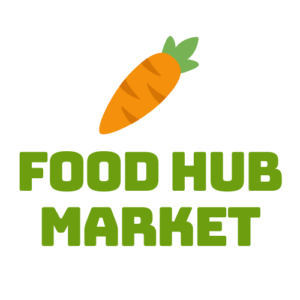As I was traveling old world streets in different parts of Europe and Asia I realized the ideology that all of these magical places have in common is how connected the locals are to the foods they eat. Whether you’re traveling in Italy, France, Albania, Spain, Portugal or elsewhere, the local people know the local varieties and where their food comes from.
When I came back to the states from my travels, I realized that in capitalistic economies a mass majority of people are disconnected from their local food systems. They simply walk into a big box grocery store, buy some produce that came from thousands of miles away, and carry on without any awareness of how long it sat in transit, how much was spoiled and had to be thrown out, who grew their food, or even what their food would taste like if it was grown without harmful chemicals and pesticides.
Additionally, many of the shoppers I spoke with say that the tomatoes they buy in the big chain grocery stores have no taste, it’s just cardboard and water. They know something is missing but sourcing local is a task. What would your food look, taste, and feel like if it was harvested fresh? What would your diets look like if you began to eat seasonally?
This was the catalyst which encouraged me to begin a mission to help, educate, and connect local consumers to local producers, farmers, and foragers. Rome was not built in a day, and neither is the idea that we can shift consumer habits from buying commercially grown GMO foods, to locally grown and harvested foods by producers which we can trust and have relationships with. I’m not saying that we should only buy locally. What I’m saying is that the small organic farmers who care about what we eat deserve to have a centralized system where they can sell directly to the consumer and be compensated a fair amount.
This has a number of beneficial affects on local food systems: It supports sustainable ecosystems, increases the genetic varieties of foods; which create biodiverse traits that protect crops from drought, fungus, and bacterias which can kill them, it cuts down on food waste and storage during transportation, it drastically improves the nutrient density, taste, feel, and most importantly, it pulls small farmers out of generational cycles of poverty; because instead of selling to a middle man and only receiving .09 cents from every food dollar, they now receive .90 cents of every food dollar! This allows them to scale up their biodiverse farms using sustainable practices, support their families, and continue to do the jobs which bring them joy.
I encourage you to become a local food advocate in your community. How? By sharing our mission. Go to your local farmers markets and show them our website www.foodhubmarket.com, tell them to make a free account, and bring their farm stand online. Why should they do this? Because, this is going to help improve their market reach, compete with big corporate grocery stores, and save their shoppers so much time when sourcing locally with them.
Let’s change the way we eat, by building relationships, and improving local food economies. Together we can improve our lives and support the small farmers who grow high quality biodiverse foods.
Good luck Food Advocates! If you have any questions, please send me an email@ foodhubmarket@gmail.com, and follow us on twitter and instagram #foodhubmarket
Thank you for the work you do in supporting local food systems.
-Rishi Soneja-
Founder & Food Systems Advocate

Responses